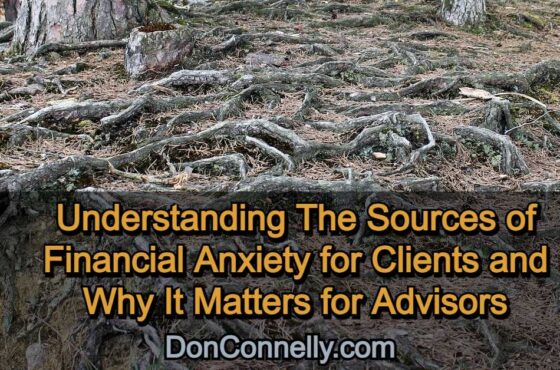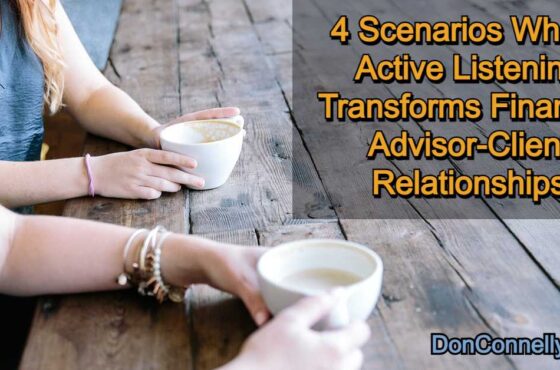Emotional Intelligence Enables Us to Manage The Emotions of Others
Listen to this audio episode or read the transcript below to learn why emotional intelligence enables us to manage the emotions of others, and how to do it.
You and I like to think of ourselves as objective thinkers.
We try to put our emotions aside. We live in a world of research and numbers. Our recommendations are black and white. Investment results are there for all to see. Our advice is either good or bad. The plans we recommend either work or they don’t. Clients say yes or no. We open the account or we don’t.
Our clients, on the other hand, are subjective thinkers.
Every decision they make is fraught with emotion. Should they or shouldn’t they? The timing is just not right. We should wait until things get better. What if I lose everything? Whom do I trust? We might want to get to the sidelines and sit this one out. I want to provide for my family’s future, but I am afraid of losing money.
Decisions are not objective. Decisions are emotional.
It’s a natural stone wall when we make an objective recommendation and the other party has to make an emotional decision.
I’m going to suggest that clients are not going to become better objective thinkers. We’ve got to become better emotional thinkers. We’ve got to ramp up our emotional intelligence.
Emotional intelligence is the ability to monitor our emotions and the emotions of others.
It guides our thinking and our behavior. The better you control your own emotions, the better you can control the emotions of your client.
The next time you are on an airplane that experiences unusual turbulence, notice how everyone looks around. Those who can see the flight attendant look at the flight attendant. If the flight attendant were to panic, everyone who saw the panic would in turn panic.
The better the flight attendant controls his or her emotions, the better he or she can control the passengers’ emotions. The same principle applies to you and your clients in the midst of market turbulence. You can’t control the market, but you can control your reaction to it.
One of the great drivers of emotions is a well-crafted story.
A great storyteller can make us laugh, cry or take action. He can make us feel guilty, he can make us feel heroic and he can make us feel any way he wants. If you learn to become a great storyteller, you, too, can have a profound effect on the emotions of others.
You will do better as an Advisor if you learn to stir up emotions.
If, during your presentation, you lay all the facts on the table, you haven’t done a complete job. The client is going to react according to his perceptions and feelings, not your facts.
She is trying to decide if moving ahead is the right thing to do. When deciding to do the right thing, nobody sets his or her emotions aside. Those emotions are in play and it is up to you to direct them to the right associations.
Know yourself and your emotions.
Know ahead of time how you will react in certain situations. Eliminate negative emotions. Choose to be positive. Get rid of the negative self-talk. Understand your style of influencing. Learn how to say those things which make a difference. Only then can you begin to influence the emotions of others.
If you liked this post, join Don Connelly 24/7 learning center for more.
We recommend PLATINUM membership for its best value for money – $249/year!



